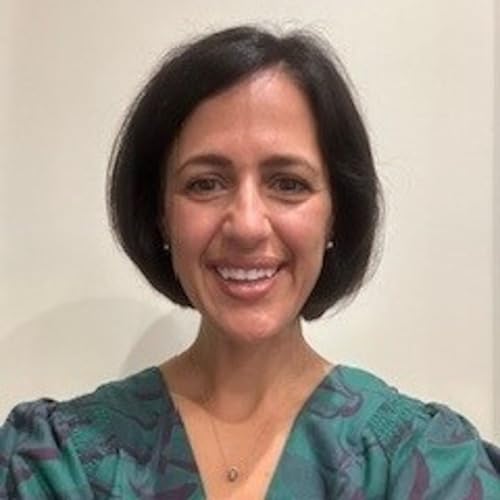
Stories from the Frontlines of Cancer Caregiving
カートのアイテムが多すぎます
カートに追加できませんでした。
ウィッシュリストに追加できませんでした。
ほしい物リストの削除に失敗しました。
ポッドキャストのフォローに失敗しました
ポッドキャストのフォロー解除に失敗しました
-
ナレーター:
-
著者:
このコンテンツについて
In this episode, we sit down with Anastasia Cacavias, a registered nurse and manager of the Blood and Marrow Transplant Leukemia Program at Northside Hospital Cancer Institute in Atlanta. Anastasia walks us through the essential role that caregivers play throughout the transplant journey—from initial diagnosis to long-term recovery. Her perspective comes not only from clinical experience but from deeply personal connections with patients and their support systems.
We begin by discussing the broad and intensive responsibilities caregivers take on. These range from medication management, symptom monitoring, transportation, and attending every medical appointment to providing emotional support 24/7. Anastasia explains how caregivers are not just passive companions but active partners in medical care. They’re educated thoroughly before the patient begins their conditioning regimen, especially about signs of infection, graft-versus-host disease, and other complications.
Once patients return home, the caregiver’s role intensifies. They’re responsible for maintaining a clean home environment, food preparation, hygiene assistance, and ensuring infection control—such as hand washing, mask-wearing, and visitor limitations. Anastasia offers guidance on how caregivers can prepare, including maintaining good communication, staying organized, and using a detailed education notebook provided by the hospital.
Self-care for caregivers is a major focus. Anastasia emphasizes that it’s okay to admit feeling overwhelmed. She encourages them to take breaks, get proper rest, eat well, and tap into family or community resources for support. Even small actions, like letting someone else bring the patient to the clinic for a few hours, can be meaningful.
We also explore more medical territory—highlighting key patient needs such as hydration, nutrition, and mobility. Physical therapy is introduced before transplant and continued after, with an emphasis on realistic daily movement goals. Proper dental care, both pre- and post-transplant, is essential to avoid complications, with tips like using alcohol-free mouthwash and soft-bristled brushes.
We touch on important transplant-related complications such as Graft-versus-Host Disease (GvHD) and Veno-Occlusive Disease (VOD). Anastasia details the signs to watch for, treatment protocols, and the hospital's proactive approach, including assigning dedicated GvHD nurses and maintaining 24/7 communication lines for urgent symptoms.
Anastasia closes the conversation with moving stories of caregivers who went above and beyond—reminding us of the emotional strength and love that often fuels this journey. These stories reinforce her message: caregivers are central to healing. Without them, recovery would look very different.
Northside Hospital: https://www.northside.com/
National Marrow Donor Program (NMDP): https://bethematch.org
This season is sponsored by Sanofi: https://www.sanofi.com/
And Jazz Pharmaceuticals: https://www.jazzpharma.com/
National Bone Marrow Transplant Link - (800) LINK-BMT, or (800) 546-5268.
nbmtLINK Website: https://www.nbmtlink.org/
nbmtLINK Facebook Page: https://www.facebook.com/nbmtLINK
Follow the nbmtLINK on Instagram! https://www.instagram.com/nbmtlink/
The nbmtLINK YouTube Page can be found by clicking here.
To participate in the GVHD Mosaic, click here: https://amp.livemosaics.com/gvhd
Hosted by Simplecast, an AdsWizz company. See pcm.adswizz.com for information about our collection and use of personal data for advertising.



